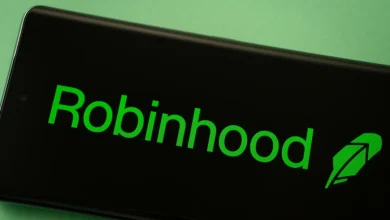KuCoin Appeals FINTRAC Decision, Challenges $19.6M Penalty


What happened?
KuCoin, a cryptocurrency platform, has officially filed an appeal against the Financial Transactions and Reports Analysis Centre of Canada (FINTRAC). The appeal is against FINTRAC‘s decision from March 31, 2025, which gave a $19.6 million penalty for things like not reporting suspicious transactions and running a money services business without registering.
KuCoin says that FINTRAC’s classification is wrong and the punishment is too harsh. The company is taking the decision to Canada’s Federal Court, saying that the regulator’s findings are wrong or go too far.
KuCoin’s public statement said that it is still committed to following the rules and being open about what it does. It also said that users’ operations shouldn’t be affected while the legal process is going on.
What it means for traders and the crypto industry
This case is a large test of how regulators deal with platforms that work across borders. For people who invest in cryptocurrencies, the decision could show how far law enforcement will go in putting global platforms under domestic money-services laws.
The risk of jurisdiction gets worse. As global platforms grow, regulatory bodies look for ways to enforce the rules. This appeal’s outcome could set a standard for whether platforms can be treated like foreign companies or if they have to follow stricter national rules.
Effects on trust and liquidity. If the appeal fails or a ruling goes against KuCoin, it could hurt trust, lower institutional inflows, and change liquidity. On the other hand, if KuCoin wins, it could make platforms more willing to fight back against harsh regulatory actions.
It is becoming clearer how regulations will work together. The appeal will look closely at the thresholds and methods that FINTRAC uses, and it could lead to changes or clarifications in how Canadian law classifies crypto platforms.
What are the differences between this and KuCoin’s past legal difficultys?
KuCoin has already faced a lot of legal trouble in the U.S. Earlier this year, the company admitted to running an unlicensed money-transmitting business and agreed to pay almost $300 million in fines and forfeiture. It also agreed to leave the U.S. market for at least two years.
With that in mind, the Canadian appeal is part of KuCoin’s ongoing global legal strategy, which has changed from settling compliance issues to fighting enforcement decisions. In the U.S., the case was settled by plea, but in Canada, the case is being fought hard in court.
Some platforms quietly settle penalties with each other, but KuCoin’s aggressive stance suggests that it is willing to defend its business models in court. The outcome could change how platforms make decisions about compliance and risk in the future.
What comes next? Outlook and risks
– Timelines for the court: The appeal process in Federal Court could take a long time. Expect temporary hearings, responses from regulators, and maybe even injunctions.
– Effect on operations: KuCoin says that user services will not be affected; trading, withdrawals, and deposits should all go on as normal during the legal process.
– Possible outcomes of the ruling:
• If KuCoin wins, it could make FINTRAC change how it enforces the law and give other platforms the courage to fight penalties.
• If KuCoin loses, fines and damage to its reputation could make regulators in other places more strict.
– Global regulatory mood: A lot of places are making rules for crypto stricter. The decisions of Canada’s courts could have an effect on policy in Europe, Asia, and Latin America.
What Investors Should Know
KuCoin’s choice to fight instead of settle could change the way that domestic regulators and global crypto platforms work together. Traders and businesses should keep a close eye on this because decisions here could change the costs of compliance, the risks of running a business, and access to the market.
KuCoin’s appeal and legal battle in Canada could become a landmark case in crypto regulation, showing how far national governments can go to regulate global trading platforms.







